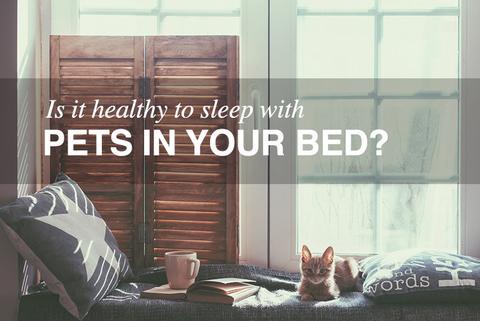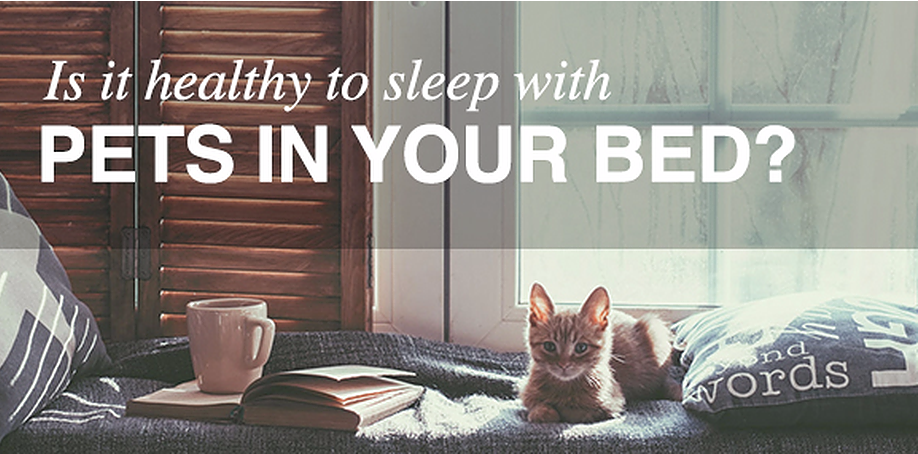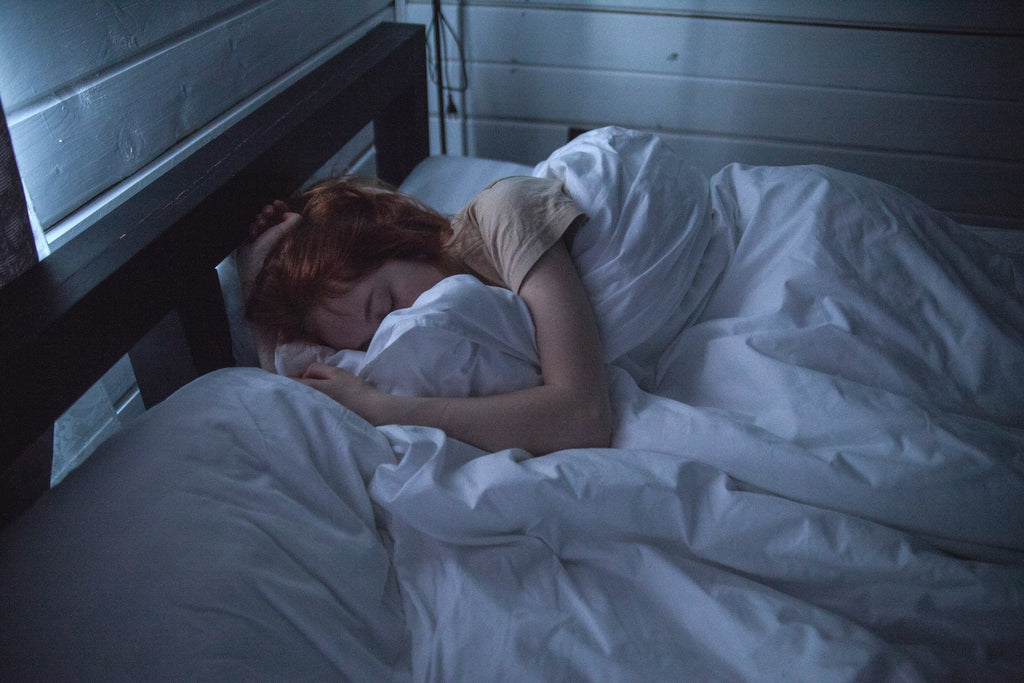
Is It Healthy To Sleep With Your Pets In Your Bed?


We all love our furry friends and want to spend time with them. We love playing with them, we love talking to them, we love showing them our affection with a little behind-the-ear scratch action, and we love to cuddle them. But is it healthy for our cats or dogs to sleep with us in our beds? Are there benefits or health concerns?
Is it healthy to sleep with my pet?
We would love to give you a solid “yes” or “no”, but the truth is that the answer is really dependent on you and your pet. What are your needs? What are your pet’s needs? Do we let sleeping dogs lie or do we kick them out of bed? Let’s weigh both sides of the issue so you can decide what is right for you.
The Pros
Let’s face it, if you are here reading this article, there’s a pretty good chance you don’t mind sharing your bed with your dog or cat. A big dog or even a little cat can offer a sense of security that can put a restless mind at ease. Some people need that more than others, but it always feels nice to know that a friend is nearby.
We mentioned cuddle time earlier, but it really is a big deal to pets and pet owners alike. Some of us work long hours, have multiple kids running around the house, and/or have a million tasks to complete every evening. It isn’t always easy to fit pet-cuddles into your daily schedule. If you let them sleep in your bed, you can effectively spend time with them while unconscious. It may not seem ideal, but your pets will enjoy it.
On that note, what does your pet think about all of this? If your pet is willing to get in your bed and sleep with you, it shows that they are happy doing it. Many solo pets get lonely when their owners go off to work or school which can affect their happiness and health in negative ways. If they want to get in your bed, it could just be for a little companionship.
Finally, there’s the issue of routines. Pets, like people, generally function better with routines. Throw out the routine and your pet will be running around in circles trying to make sense of his or her surroundings. A solid, healthy routine includes the obvious feeding times and treat times, but it also includes where the pet goes when all of the lights go out at night. Shutting a pet out of your bedroom could cause it to become angry, destructive, or just plain sad.
The Cons
Pets don’t always have the same concerns about their sleeping environment as we do. Because of this, they can do things that range from a little annoying to flat-out unbearable. Not that they act this way on purpose, they just don’t know what they are doing (probably).
Many of us have had to deal with the dreaded “cover-hog”. Whether your pet sleeps on or under your sheets, they can easily end up with the bedspread to themselves by morning. This can have a big impact on your sleep pattern, causing you to wake up multiple times throughout the night.
In a new study from the Mayo Clinic on the effects of sleeping with dogs in your bedroom, they found that many dog owners slept very well with their pets in their bedrooms, but having a pup in their bed with them caused disruption of sleep.
Being members of our families, we often treat pets like people. Just like people, some pets can also be noisy or restless sleepers. If your pet is constantly shifting positions, it can shake your whole mattress making it very hard for you to stay asleep through the night.
The final concern is less about sleep and more about sanitation. Pets can carry all sorts of bacteria and diseases around on their little furry bodies. When they sleep with you, those bacteria and diseases can easily transfer to your sheet, your pillow, and ultimately, YOU. The problem only gets worse if you live in an area where your pet has the ability to run around outside, collecting everything under the sun on his or her paws and mouths. Studies recommend keeping a pet out of the beds of children, elderly, and anyone who is ill or prone to being ill. Regular grooming, bathing, and veterinary care can decrease the odds of this becoming an issue.
How To Get a Pet Out of your bed
If the cons above persuaded you to rethink your furry bunk mate, what now? How do you tell your fur baby that they can’t sleep with you any longer? You will need a better alternative.
For dogs, try getting a big, comfy dog bed to put next to your bed. Your dog will get the benefit of being in the room with you and you will get the benefit of not having to worry where your legs end up overnight.
One good trick to convince them that this is a good option is to avoid giving them affection on the bed, but giving them treats and loving when they are on the floor near the bed. This can smooth over the transition and teach them where you need them to be.

For cats, it’s usually a little bit easier. They see your bed as a safe space that is up off the ground. So all you need to do is give them a space that feels safer and further off the ground. Cat towers or cat condos are great for this. They offer the cat a good view of the room and several nice spots to feel safe while asleep (bonus points if it’s in your room).
Conclusion? it's up to you
Ultimately, whatever you decide to do needs to be what is best for yourself and your furry friend. Do you sleep in the same bed with your cat, dog, rabbit, or any other animal? Let us know in the comment section below!




